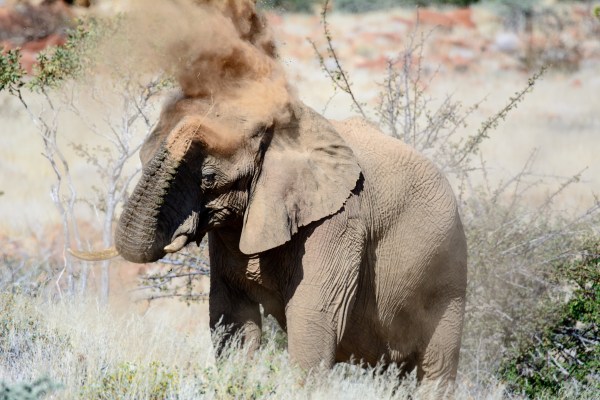
A few days ago, a strange ad appeared in a local Zimbabwean newspaper. It bore the seal of Zimbabwe’s Parks and Wildlife Authority and offered up live animals for sale. It was, in essence, a classified ad for big game — Simba and friends up for grabs at wholesale prices. The conservationist’s knee jerk response to this move is revulsion. Who will buy these animals? What will happen? How will they be treated? What precedent does this set?
The answers: Whoever wants them; Probably bad things; Impossible to say; Not a great one. But none of that matters, because Zimbabwe is at the end of its rope. The country is in a drought-induced state of disaster. The central bank has introduced bond notes — which might not be worth the paper they’re printed on — in hopes of outlasting currency shortages. People are panicked and hungry. Children are malnourished. Better options are nowhere to be found.
Given this situation, the Cecil the Lion treatment is impossible because there’s no douchey dentist to take the brunt of our outrage. Which leaves everyone feeling powerless and answerless. Last year, Zimbabwe sold off 60 elephants to China — a move which prompted plenty of outrage, as Chinese demand for elephants hasn’t historically been benevolent. Baby elephants were ripped from the herd and shipped overseas, which is, unarguably, depressing as hell. Still, Zimbabwe’s Parks & Tourism Authority stuck to their plan. Tourism Minister Walter Mzembi explained to reporters that Hwange National Park was home to twice as many elephants as it was supposed to hold, keeping the elephants would decrease resources for other species. He might as well have said, “Sorry, PETA. But you don’t have a country to run.”
Which is true. Conservationists don’t have a country to run. And Zimbabwe is in serious peril (due, at least partially, to the people running it). Who are we to judge their selling of natural resources? How dare we — particularly if we want to avoid bigger questions of how the global economy has contributed to Central African turmoil? The truth is, unless other national parks in Africa (or AZA accredited zoos) swoop in and pay top dollar for these animals and that money goes toward drilling wells, the animals that are sold are going to get a raw deal. Some will be hunted, some will be kept as quasi pets, and many will continue to suffer poor living conditions. But the raw deal for animals is trying to balance an ecosystem and prevent human deaths. Even The Dodo, a conservation-minded outlet, hasn’t taken a strong stand against the move. Because, at the core, most conservationists believe that if there’s only one sip of water left, it should go to a human before a rhino.
Our population and our ability to support that population are currently out of whack. We can expect continual resource conflicts. When we contend with animals for those resources, our compassion for them — which spikes on occasion — will likely wane. Zimbabwe needs foreign aid, it needs tourism dollars, and it needs leadership that the international community can trust.
So what will happen next? What if the drought continues? Unless the skies open up and the rain falls, there will be no easy answers. Which makes all the questions that much harder to wrestle with. And yet — outside of remaining ignorant or paying lip service — what other choice do we have other than to roll up our sleeves and face them?






